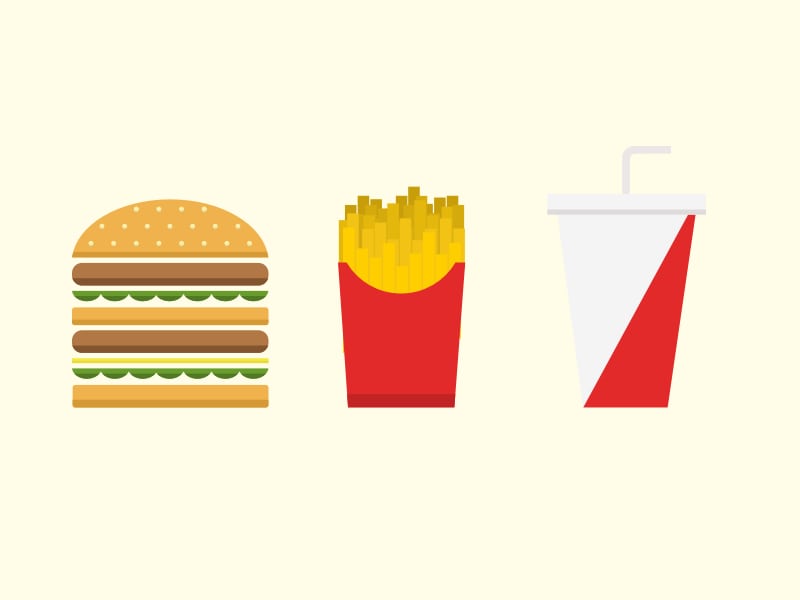You trudge out of the club, seven beers heavier (and a few pounds of shame lighter) after your inner Casanova so spectacularly failed to show up. “Whatever,” you figure, “I may have struck out—but at least I can get a kebab or and a slice of pizza on my way home.” Sure, you’ve had dinner already, but this 2 for 1 Meatlovers special is just too good to resist.
Then, after consuming more grease in one sitting than you would normally in an entire week, you go to sleep with a fast-food baby in your belly, and wake up wondering: why the hell did I do that? Everyone knows alcohol reduces inhibitions, so you know why you acted on your drunken craving—but why did you get it in the first place?
If this train of thought sounds familiar, don’t worry, there’s now an explanation: after seeing an ad in a campus newspaper promoting unhealthy late-night foods, researchers from the University of Buffalo decided to investigate whether there was a biological excuse for your drunken cravings.
“They’re called the “drunchies,” or drunk munchies. It’s the desire one has to eat salty, fatty, unhealthy foods during or after a night of heavy drinking,” (Science Daily).
“Given the obesity epidemic and the rates of alcohol consumption on college campuses, we need to be aware of not only the negative effect of alcohol consumption, but also the impact it has on what people are eating while they are drinking,” said Jessica Kruger, the lead author of the study.
According to the Californian Journal of Health Promotion, previous research had already found that students’ junk food cravings increase (and that they tend to eat fewer fruits and vegetables) when they drink alcohol. This study explored why that is the case, examining “heavy episodic drinking” and “dietary choices” both while drinking and on the following day.
As reported by Science Daily, “Kruger and her colleagues from the University of Michigan, University of Toledo, and Bowling Green State University, conducted their study on a sample of 286 students at a large public university in the Midwest.”
Study participants filled out an anonymous online survey, which began with general questions around diet like, “What do you typically eat for your first meal of the day?” and “How often do you eat something before you go to bed?” This set a benchmark against which their eating habits when they went out drinking could be compared.
my stages of drunk are:
1. “I’m not even buzzed yet.”
2. *sitting in the wet grass somewhere with my shoes off eating Pizza*— Drunk (@drunk) August 3, 2018
“Later in the survey,” reported Science Daily, “They were asked how often they ate something before bed on nights when they drank alcohol, and what they ate. They were also asked what they typically ate for their first meal the day after a night of binge drinking.”
The result? Researchers found that drinking significantly influenced study participants’ nocturnal eating patterns. “All alcohol drinkers were more likely to eat something before they went to bed after drinking alcohol than in general before they go to bed,” the report concluded.
“Specifically, they were more likely to opt for salty snack foods and pizza. Healthy foods, such as dark green vegetables and other veggies they would ordinarily eat, weren’t as appealing,” (Science Daily).
So what’s happening in the body all this time? Is it really ~physiology~ that makes us order a 2am kebab and then replace our normal breakfast of cereal and milk with tacos? In a word: yes. Or at least, probably; “It is believed that after drinking alcohol, the amount of blood glucose in the body can rise and fall which stimulates the brain to feel hungry,” Kruger explained.
Compounding the problem, researchers also noted, was the fact that participants didn’t report drinking more water or other non-alcoholic beverages before going to sleep, exacerbating dehydration, and leading to even more unhealthy food choices.
Considering the abundance of fast food options around universities and urban night-life zones, as well as America’s growing obesity epidemic, these findings point to the need to encourage healthy eating at all times of the day, including late at night.
